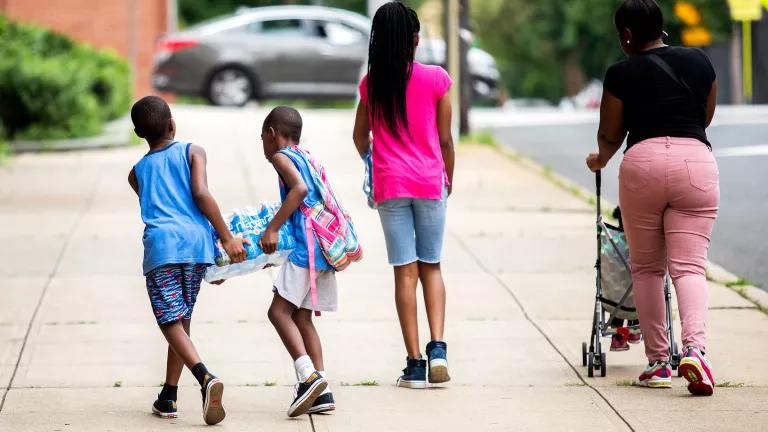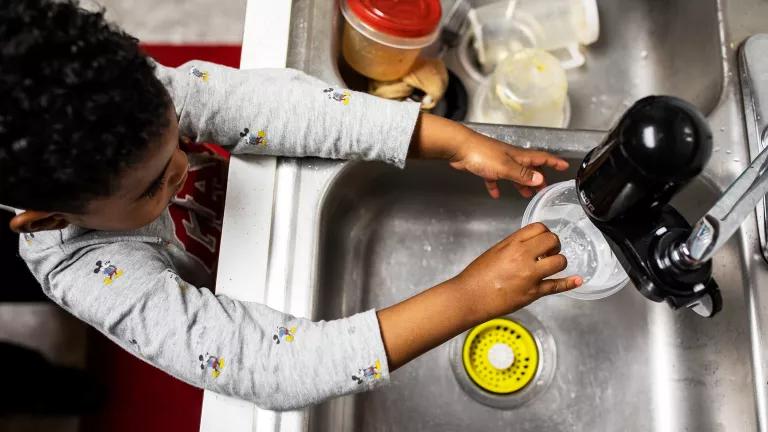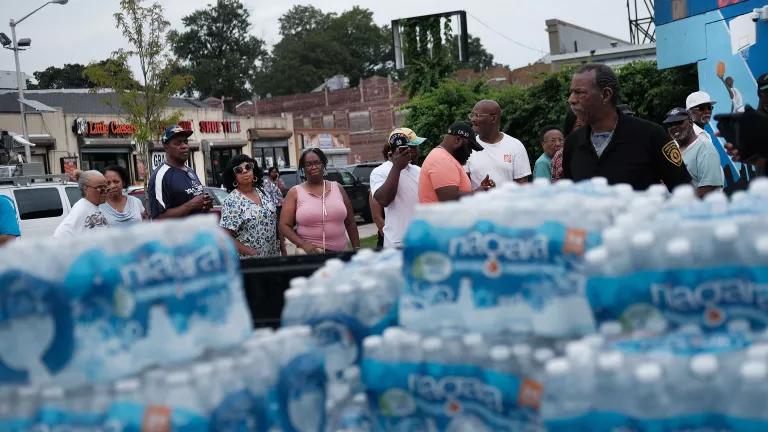Court Denies At-Risk Residents Bottled Water in Newark
The decision will leave pregnant women and those with young children in the city’s eastern service area at risk for exposure to lead-contaminated tap water.

The decision will leave pregnant women and those with young children in the city’s eastern service area at risk for exposure to lead-contaminated tap water.
In the ongoing fight for safe drinking water in Newark, New Jersey, where high levels of lead have plagued its water for years, a U.S. district judge denied a request to order city officials to provide bottled water to at-risk residents—pregnant women and those with children younger than six years old—in the eastern part of the city.
“Everyone in Newark has a right to safe drinking water, but unfortunately, thousands of very vulnerable residents will not get it,” says Erik Olson, senior director of Health and Food at NRDC, which, together with the Newark Education Workers (NEW) Caucus, filed a lawsuit against the city of Newark over the dangerous lead levels in its drinking water.
“This ruling is yet another example of how Newark, the state of New Jersey, and our entire national political structure do not care about our students, their families, and their communities,” says Yvette Jordan, a founding member of NEW Caucus. “Even the simplest and most temporary of fixes, like the provision of bottled water to vulnerable residents in all neighborhoods harmed by lead in their water, is too much for the system to provide.”
Newark’s water continues to have some of the highest levels of lead of any city in the nation. The public health crisis has now persisted for more than two and a half years, and the city’s inadequate response—including a public denial of the problem and failure to take action despite early warnings—left thousands unprotected from the toxic heavy metal. Earlier this month, the U.S. Environmental Agency ordered the city to provide bottled water to residents with lead pipes throughout much of Newark earlier this month but left out residents in the eastern Wanaque service area.
Pregnant women and children are the most vulnerable to lead exposure—even low levels are associated with serious and irreversible harm to developing brains and nervous systems. Exposure is also linked to fertility issues, cardiovascular and kidney problems, and cognitive dysfunction.
“The initial steps taken by the city in recent months are inadequate and will not be enough to stem the health emergency caused by widespread exposure to lead, which is unsafe at any level,” Olson says. “The NEW Caucus and NRDC will carry on the fight to ensure that every Newark citizen gets safe drinking water and are considering our legal options at this time.”



